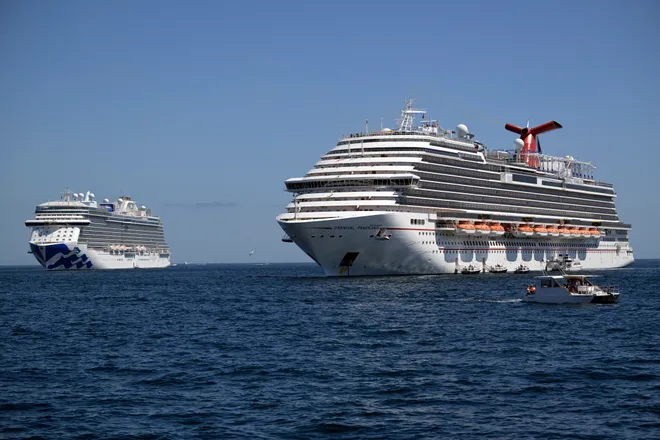A new tax on cruise ship passengers visiting Mexico has been delayed following pushback from the industry.
The Florida-Caribbean Cruise Association said the $42-per-guest charge is now expected to take effect on July 1, 2025 rather than Jan. 1 following a meeting with Mexican government officials. “While the proposed postponement provides a temporary reprieve, FCCA stresses that more comprehensive measures are required to address broader concerns about the tax’s devastating impact on cruise tourism, Mexico’s economy, and the livelihoods of its coastal communities,” the trade organization said in a news release on Sunday.
Mexico’s National Confederation of Chambers of Commerce, Services and Tourism did not immediately respond to a request for comment on the delay.
Mexico’s Senate approved the measure last week after it passed in the lower house, the Associated Press reported. Two-thirds of funds collected will be earmarked for the country’s army.

What are tourist taxes?:Why travelers are expected to pay up
Cruise passengers were previously exempt from tourist taxes under the Non-Migrant Rights policy because they were considered in transit, according to the Mexican Association of Shipping Agents (AMANAC).
Mexico, home to marquee ports like Cozumel, is a massively popular cruise destination. More than 10 million passengers are expected to visit in 2025, according to the FCCA, and industry players have warned of the tax’s potentially dire ripple effects.
“The impact of this tax on Mexican tourist destinations will be disastrous,” the Mexican Association of Cruises said in the same news release Sunday. “If implemented, we expect to see a progressive drop in arrivals, which will significantly affect employment for taxi drivers, tour guides, artisans, waiters, restaurateurs, craft store owners, pharmacies, and more. This also impacts artisanal suppliers from regions like Chiapas, Guerrero, Oaxaca, Sinaloa and others who support the ports where cruise ships dock.”
The group said the resulting loss in income would mean a decrease in available jobs and tax revenue. The statement continued, “Mexico will lose its competitiveness, becoming one of the most expensive cruise destinations in the world.”



